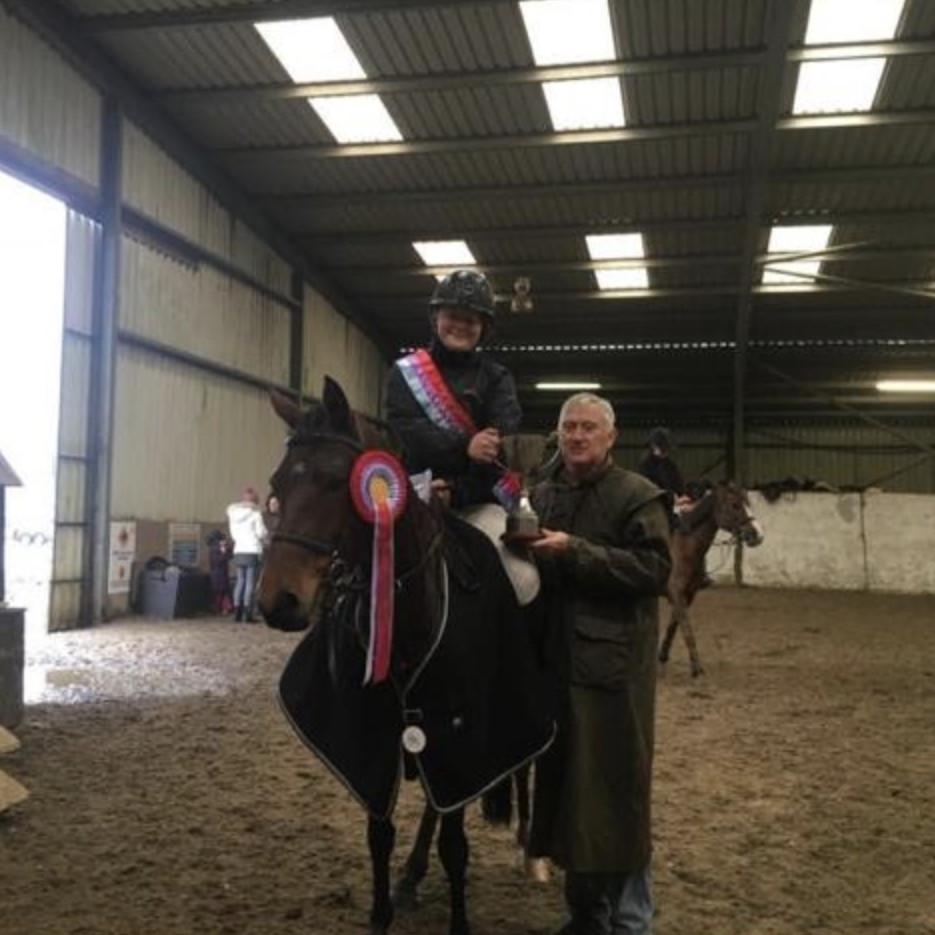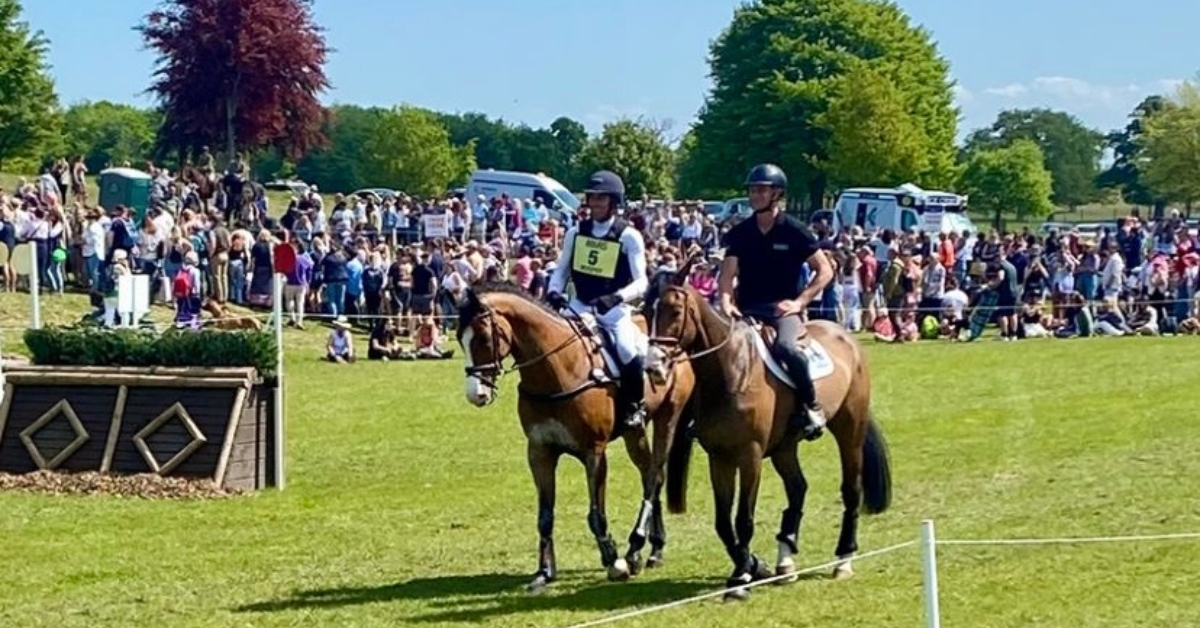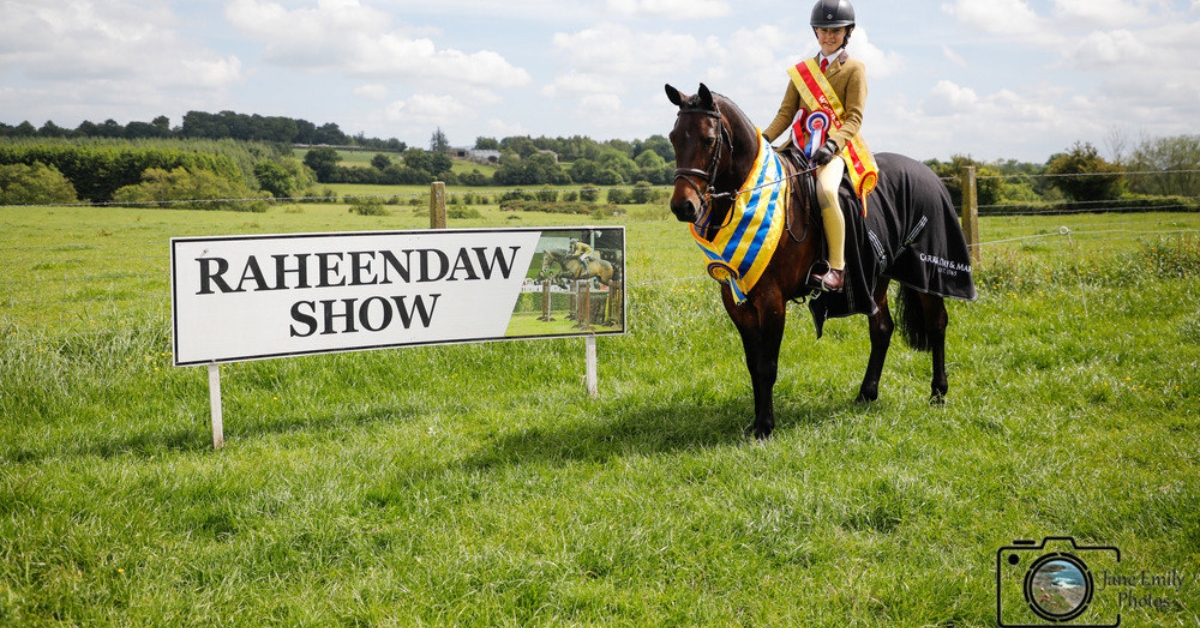In every walk of life, we come across people who suffer from mental disorders. Often, we do not even know these people are suffering with their mental health. A lot of the time people keep their struggles secret because they fear being judged by others. This stigma surrounds mental health in not only Equestrian sport, but in everyday life too. People genuinely feel that they will be judged and ostracized should other people know about their struggles. This mentality stems from the fact that we do not acknowledge and talk regularly about mental disorders. I think, plainly because we cannot see mental disorders, people often try their best to avoid the subject entirely. Perhaps people don’t really know how to approach topics like these, especially if they do not suffer from a mental illness themselves. Broken collarbones, sprained ankles and even concussions are spoken about without hesitation and yet the whole subject of Mental Health is still a hypothetical grey area. This needs to change because of the simple fact that people suffer from these mental disorders, and we need to have these conversations in order to abolish the stigma surrounding mental health in Equestrian sports and help those who are suffering in silence. We need to continue to make mental health an everyday topic until the stigma surrounding it disappears.
The largest scale study of its kind in Ireland examined over half of the professional jockeys in Ireland and found that:
35% of jockeys met the threshold for depression.
27% of jockeys met the threshold for anxiety.
19% of jockeys met the threshold for psychological distress.
61% of jockeys consumed an excessive amount of alcohol.
Of the 54 jockeys presenting with symptoms of mental health difficulties, only a third had ever visited a mental health professional.
A subsequent study delving into the mental health of trainers revealed just under half of these trainers met the criteria for a common mental disorder.
41% of trainers met the threshold for Depression.
38% of trainers consumed an excessive amount of alcohol.
26% of trainers met the threshold for psychological distress.
18% of trainers met the threshold for Anxiety.
These mental disorders are often debilitating for the people who suffer from them so by abolishing the stigma surrounding mental health in equestrian sport, it makes it easier for people who are suffering to talk openly and freely about their struggles. This can help people who are struggling to no end.
Mental Health Struggles in professionals
An example of a professional sportsperson in equestrian sport who has suffered from a mental disorder is the one and only Charlotte Dujardin. You might think Charlotte had it all, the horses, the medals, the fiancé, but after the 2012 Olympics Charlotte faced serious mental health difficulties.
The whirlwind which followed Charlotte for some time after her double gold at the 2012 Olympics with Valegro (Blueberry) wreaked havoc within her life, her relationship, and consequently her mental health.
Charlotte’s fiancé, Dean Golding, decided to take time away from the relationship to clear his mind amid the chaos. In the run up to Christmas 2012 Golding moved out of the home he and Charlotte shared. During this time there was also the possibility of Charlottes record-breaking partner, Valegro, being sold. “The thought that I might lose Valegro made me feel like my heart was being ripped out and wrenched in every direction.”
As Charlotte details her feelings over those few months, she explains that she punished herself by not eating, losing over 2 stone in weight. ‘It felt like a lot, but it did not scare me, it made me feel better about myself. Everyone was saying, “Oh my God, Charlotte, you look really skinny. Are you all right?” But I would put my clothes on and feel really good about myself, which is dangerous territory to be in.’ Charlotte acknowledges that this was a coping mechanism she used to deal with her emotions. “I thought about harming myself because I had no idea what to do next. I didn’t want to stab myself or hang myself, but I had an overwhelming feeling of sadness. So, I deprived myself of food”
“I’ve never experienced pain like I did in those few months” Charlotte states upon reflection of the months after the 2012 Olympics. “If I could have given my medals back and have things return to the way there were, I would have done.”
Depression wasn’t something I’d ever really understood before. But I’d got to the point where I was thinking about harming myself because I had no idea what to do next. It felt like I’d had everything and then it had all been taken away: I’d lost my relationship; I was going to lose my horse — my whole life had been turned upside down.” Dujardin speaks bravely about coming to terms with the feelings she experienced.
Charlotte chose not to seek help from a professional. “I honestly didn’t feel as if anyone could help me. It did not matter where I went or who I spoke to, I could not escape the grief and the pain of losing my old life, the life I’d had before the Olympics, and I think that was something I had to figure out for myself.”
Blueberry wasn’t sold, instead, he stayed at Carl’s Gloucestershire yard after Anne Barrott came forward to form a syndicate with Carl and Roly Luard.
Charlotte and her fiancé, Dean, reconciled 3 months later and are still rock solid to this day. Charlotte received support from her friends and family and this, along with riding, enabled her to get through the toughest time she had endured in her life.
As you can see, mental health touches everybody’s lives in some way; professional athletes and celebrities included. We need to make mental health a subject that can be spoken freely about. The stigma surrounding mental health needs to be abolished and this can only be achieved through us as a community speaking about it regularly and assuring everybody that they won’t be ostracized or judged should they decide to open up about their struggles.



Share
Your subscription is 100% Free for our first year, No credit card details required.

There are few sporting events that live up to the hype. Wimbledon? Too many strawberries. Cheltenham? Too many suits. But

British Veterinary Association publishes full response to Competition and Markets Authority’s proposed remedies for veterinary market for household pets. The

Sunday 1st June – Raheendaw, Rathvilly, Co. Carlow The Raheendaw Horse & Pony Show returns this weekend with a packed